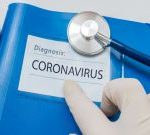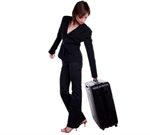
More Americans are expected to be evacuated from the epicenter of the coronavirus outbreak in China, as U.S. health officials reported a 12th domestic case of coronavirus late Wednesday. Earlier Wednesday, two planes carrying 350 Americans landed at an Air Force base in California. Some of those passengers were then flown to Marine Corps Air Station Miramar near San Diego. Both groups were put under a 14-day quarantine, U.S. health officials said. At least one more plane is expected to fly more American evacuees to military bases in Nebraska and Texas this week, The New York Times reported. In total, more than 500 Americans have already been evacuated. The first group of evacuees, who were flown out of Wuhan, China, a week ago, were moved off Travis Air Force Base in anticipation of the new arrivals, the Associated Press reported. That first group was told on Wednesday that they have all tested negative for coronavirus, health officials said. But they were to remain in quarantine for about another week, the Times reported. On the more recent evacuation flights, five people — three adults and two children — showed signs of cough or fever and were taken to hospitals for evaluation, according to the U.S. Centers for Disease Control and Prevention, the Times reported. “CDC staff are there meeting the planes and assessing the health of… read on >






















-300x200.jpg)










